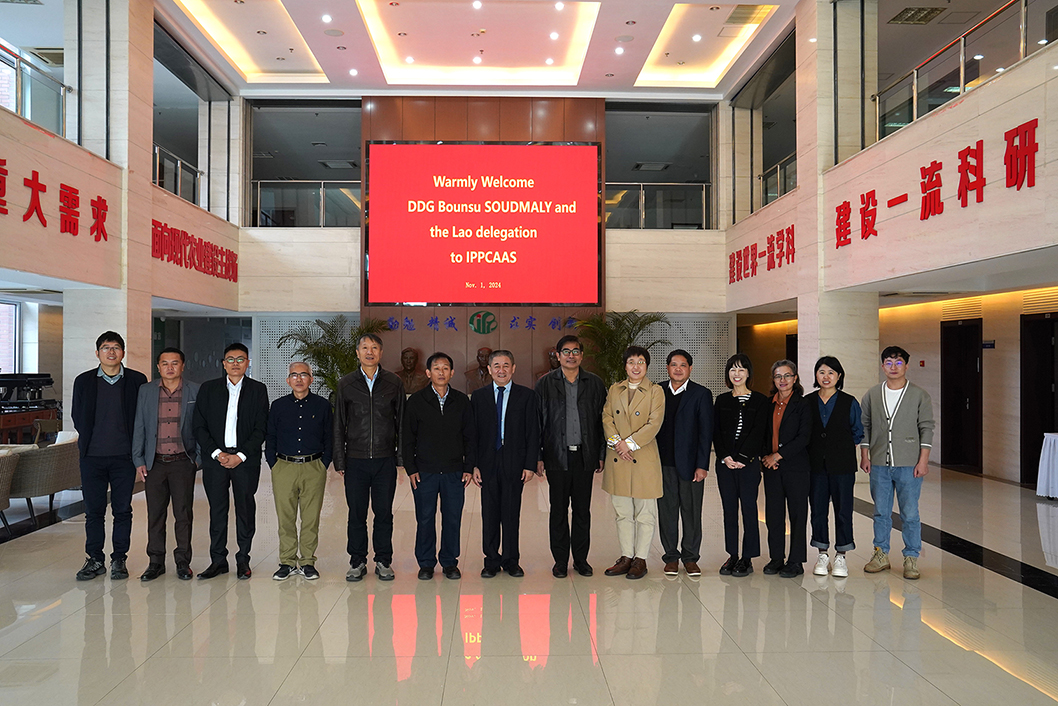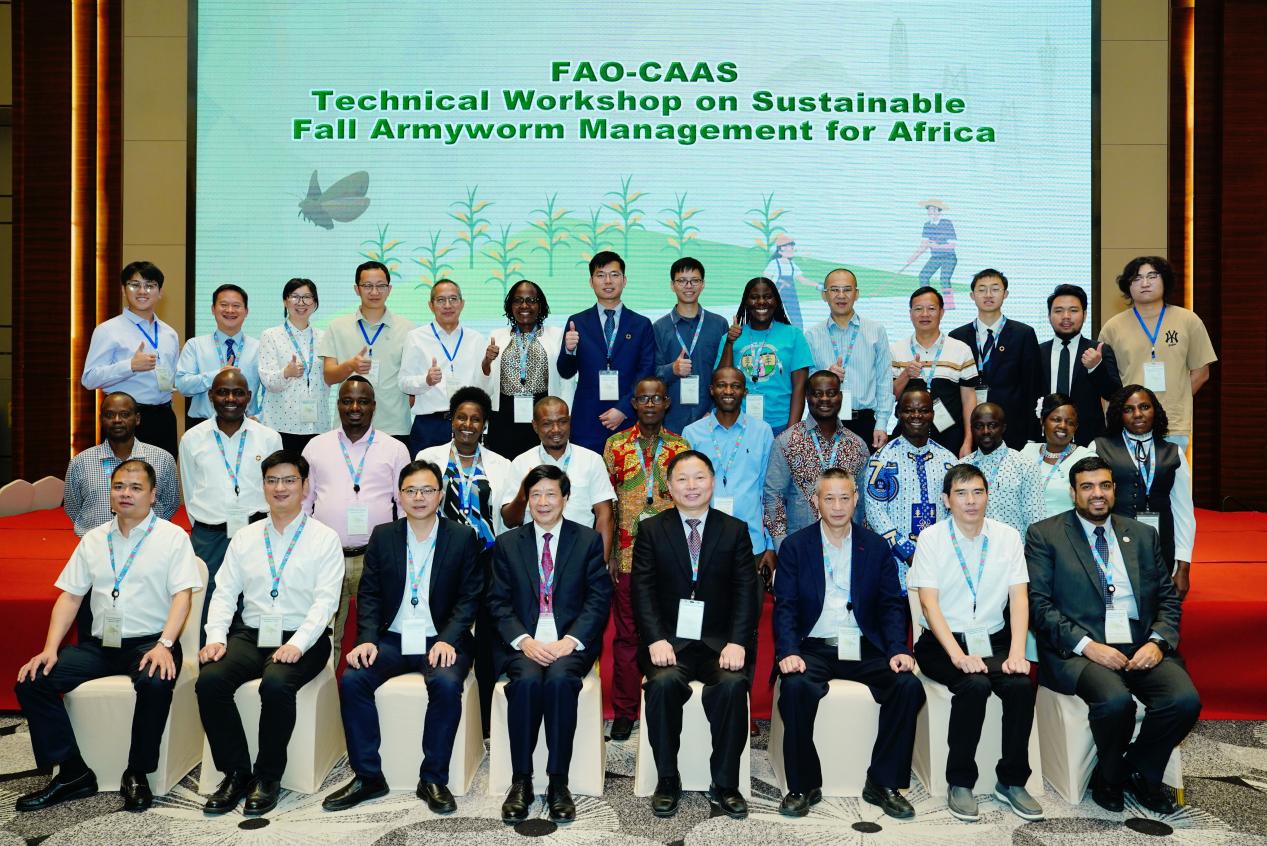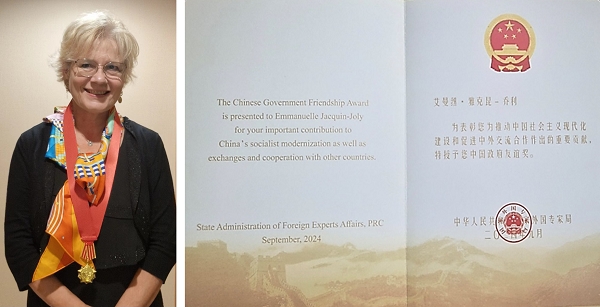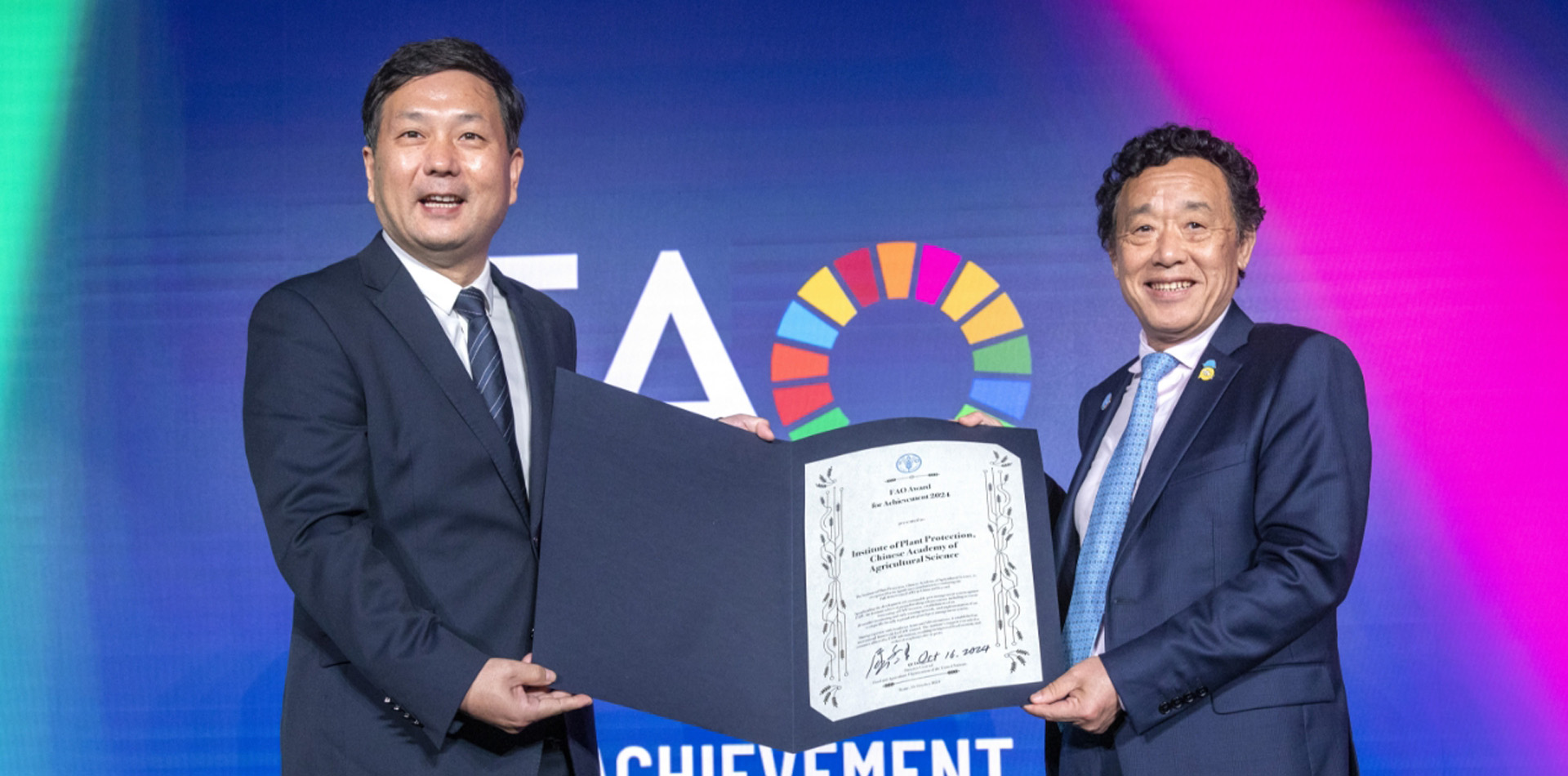IPPCAAS Makes Significant Progress in the Study of Encarsia sophia, a Parasitoid of Whiteflies
Recently, the Agricultural Invasive Species Prevention and Monitoring Innovation Team of the Institute of Plant Protection, Chinese Academy of Agricultural Sciences (IPP-CAAS), made significant advances in the genomic analysis and biological control of the Encarsia sophia , a parasitoid of the whitefly ( Bemisia tabaci ). The research results were published in Scientific Data (JCR Q1, IF: 5.8), Entomologia Generalis (JCR Q1, IF: 5.6), and Biological Control (JCR Q1, IF: 3.7), providing technical support and theoretical basis for the evolutionary characteristics, mass breeding, and field control applications of E. sophia.
E. sophia is a dominant parasitoid of the "super pest" whitefly and has become an essential biological control agent worldwide due to its exceptional parasitic and host-destroying abilities. The species exhibits a unique reproductive mode, being a typical facultative arrhenotokous parasitoid. After mating, female wasps parasitize the nymphs of whiteflies, laying fertilized eggs that develop into female offspring (primary parasitoids). Unmated females, on the other hand, lay unfertilized eggs inside the nymphs of other parasitoid larvae, which develop into male offspring (secondary parasitoids). However, this complex reproductive pattern poses challenges for mass breeding and field application.
Using Illumina, PacBio HiFi, and Hi-C technologies, the team successfully assembled the high-quality chromosome-level genome of E. sophia , marking the first-ever genomic assembly of a parasitic wasp with such a complex reproductive strategy. This achievement provides essential genetic resources for studying its evolutionary features and host interactions. The team also investigated the wasp’s mating behavior and its effects on parasitism ability, revealing its strong host adaptability. When a single mating is insufficient to meet the fertilization needs throughout the wasp’s life cycle, the female can mate multiple times to replenish sperm, ensuring continuous and effective control of whiteflies. Furthermore, the wasp can adjust its feeding and egg-laying behaviors to dynamically regulate sex ratios, maintaining a balanced ratio of 1:1.
The study offers valuable guidance for large-scale breeding and field release, including recommendations for industrial breeding processes. Male wasps can be provided within 2 hours, and each male can complete 2-3 mating tasks. After the peak egg-laying period (15 days), supplementing newly emerged males can effectively maintain mating efficiency and increase female offspring production. Under specific host conditions (0.2 secondary host ratio, 30 hosts/9.6 cm²), optimal female offspring production can be achieved with minimal secondary host consumption. For field control of whiteflies, it is suggested to prioritize the release of mated females, and for pupal releases, a balanced male-to-female ratio should be ensured to promote post-emergence mating success. Additionally, supplementing both male and female adults two weeks after the first release can further enhance control effectiveness.
The paper's first author is Man Xiaoming, a Ph.D. student jointly supervised by IPP-CAAS and the University of Liège in Belgium. The corresponding authors are Dr. Yang Nianwan and Dr. Liu Wanxue from IPP-CAAS. The research team also included IPP-CAAS graduates Wu Shengyong, Sun Liying, Associate Researcher Huang Cong, Associate Researcher Guo Jianyang, and Researcher Wan Fanghao, as well as Professor Francis Frédéric from the University of Liège. This study was supported by the National Key R&D Program (2021YFC2600400, 2023YFC2605200), the National Natural Science Foundation of China (32072493), and the Tianshan Talent Program (2022TSYCCX0084).

-
 The Lao PDR-China Joint Laboratory for Plant Protection holds technical seminar at IPPCAAS
The Lao PDR-China Joint Laboratory for Plant Protection holds technical seminar at IPPCAAS -
 IPPCAAS Successfully Organized the FAO-CAAS Technical Workshop on Sustainable Fall Armyworm Management for Africa in Guangdong
IPPCAAS Successfully Organized the FAO-CAAS Technical Workshop on Sustainable Fall Armyworm Management for Africa in Guangdong -
 IPPCAAS Hosts Symposium for CAAS-INARE International Joint Laboratory for Plant Protection to Congratulate Professor Emmanuelle Jacquin-Joly on Receiving the Chinese Government Friendship Award
IPPCAAS Hosts Symposium for CAAS-INARE International Joint Laboratory for Plant Protection to Congratulate Professor Emmanuelle Jacquin-Joly on Receiving the Chinese Government Friendship Award -
 IPPCAAS Wins the 2024 FAO Achievement Award
IPPCAAS Wins the 2024 FAO Achievement Award
